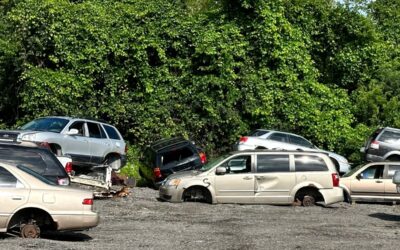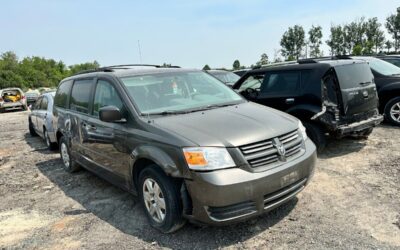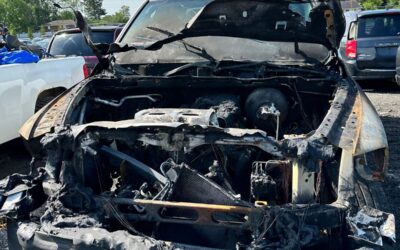Introduction
The automobile industry has been dealing with a critical dilemma for years: a slowly emerging shortage of vehicle parts. And this is not just about vehicle repair or inflated prices at service centers. This low inventory has quietly led to a more serious and often overlooked threat to the industry: illegal car scrapping. When new parts or legitimately used parts become difficult to secure, opportunistic individuals exploit the scarcity to profit through unlawful means.
Once a vehicle is stolen, its parts are harvested and sold in underground marketplaces. These illegal activities don’t just hurt law-abiding businesses but also damage the environment and put people’s safety at risk. This blog breaks down how this situation started, who’s cashing in on it, and why it’s a problem that deserves serious attention.
How Do Car Part Shortages Lead to Illegal Scrapping?
International events like the COVID-19 pandemic and geopolitical instability have caused breaches in the supply chain. Factories closed, shipping routes experienced interruptions, and a shortage of essential car parts occurred. New parts were hard to find, and the demand for used parts drastically increased. This environment creates ideal conditions for illegal operators to profit by stripping stolen vehicles and reselling the parts.
Environmental and Safety Concerns
Illegal car scrapping poses significant environmental risks. Unregulated dismantling can lead to the release of hazardous substances like oil and coolant into the environment. These pollutants contaminate soil and water sources, posing health risks to communities. Moreover, the lack of proper safety measures endangers workers at these illegal sites.
Impact on Legitimate Businesses
The surge in illegal car scrapping undermines authorized recycling centers. These legitimate businesses follow environmental regulations and ensure the safe dismantling of vehicles. However, they struggle to compete with illicit operators who offer cheaper parts without adhering to standards. This unfair competition threatens the viability of lawful enterprises.
Government and Industry Responses
Authorities are taking measures to combat illegal car scrapping. In Canada, for instance, the government has introduced a vehicle scrapping policy to promote organized recycling. This policy includes incentives for vehicle owners to scrap old cars at authorized centers. Additionally, enforcement agencies have conducted raids to shut down illegal operations.
Also Read: The Journey of Used Car Parts: From Canadian Scrap Yards to Global Markets
What Can Car Owners Do?
With rising part prices and long wait times, turning to cheaper, faster options is tempting without checking their source. But this careless move can fuel illegal car scrapping and even land buyers in trouble. Vehicle owners need to stay cautious and responsible while dealing with car repairs, scrapping, or buying used parts. Here is what you should always keep in mind:
- Go with an Authorized Car Scrapyard
If your vehicle has reached the end of its life, never hand it over to unknown buyers or unverified yards offering quick cash. Use a licensed and certified car scrapyard that follows legal guidelines and environmental safety rules. They issue proper paperwork and ensure your car isn’t stripped illegally or its parts sold on the black market. - Verify Used Car Parts Before Buying
When buying second-hand car parts, always ask about their source. Purchase from trusted auto wreckers or certified recyclers. If a seller hesitates to give details or the price sounds too good to be true, it’s a clear warning sign. Using parts from illegal sources can void your insurance or cause safety issues. - Report Suspicious Operations
If you notice abandoned vehicles, suspicious scrap yards, or unusually cheap car parts being sold around your area, don’t ignore them. Report it to local police or municipal authorities. In many places, you can make an anonymous complaint. Your tip might help stop an illegal operation that’s harming the environment and the local economy. - Stay Updated with Local Regulations
Keep yourself informed about your region’s vehicle scrapping policies and part resale rules. New laws and guidelines are being introduced to combat illegal dismantling operations. Knowing these rules can help you avoid falling into risky deals or scams. - Educate Others
Raise awareness among friends, family, and other car owners. Many people don’t realize the risks of buying parts from unreliable sources or scrapping their old cars without proper checks. A simple conversation could prevent someone from unknowingly supporting illegal activities.
Conclusion
Deciding what to do with your old car isn’t always easy, but it’s important to make a choice that benefits both you and the environment. Whether your vehicle has been sitting unused or is no longer roadworthy, scrapping it through a trusted, licensed recycler ensures it’s handled safely and responsibly.
In the GTA, Greenway Auto Recycling is known for honest, hassle-free service and fair deals. We provide proper paperwork, eco-friendly recycling, and fast cash for your vehicle.
Have questions or ready to scrap your car? Call us today at (416) 783-9026 and let our team make the process smoother, greener, and more rewarding.
Frequently Asked Questions
1. Is illegal car scrapping a problem in Ontario?
Yes. Due to global car parts shortages, illegal scrapping has become more common in Ontario. Stolen vehicles are dismantled in unregulated yards, and the parts are sold in underground markets, which harms the environment, businesses, and consumers.
2. How do I know if a scrapyard is authorized?
Authorized scrapyards in Ontario are licensed, follow environmental standards, and issue proper paperwork when you scrap your vehicle. If a buyer offers quick cash without documentation, it’s a red flag that the operation may be illegal.
3. What are the risks of buying illegal car parts?
Purchasing parts from illegal sources can lead to safety issues, voided insurance coverage, and potential legal trouble. Always buy from trusted recyclers or certified auto wreckers to ensure quality and legality.





